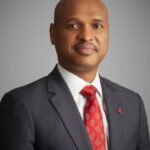Extractive industries: Mining stakeholders seek inclusiveness to address inequalities
L-R : Executive secretary NEITI Dr Orji Ogbonnaya Orji, Chairman ECOWAS Federation of Chambers of Miners, Alhaji Shehu Sani and National President , Miners Association of Nigeria , Mr Dele Ayanleke at the Multi-stakeholders Roundtable on Enhancing Inclusiveness and Addressing Inequalities in Nigeria Mining Sector
By Emmanuella Anokam
Stakeholders in the Extractive Industries have urged inclusiveness of all stakeholders and host communities to address inequalities in the mining sector.
They made the call on Wednesday, at the 2024 Multi-stakeholder Roundtable on ‘Enhancing Inclusiveness in Promoting Transparency and Addressing Inequalities in Nigeria’s Mining Sector”.
The News Agency of Nigeria (NAN) reports that the event was organised by Global Rights, in collaboration with the Nigeria Extractive Industries Transparency Initiative (NEITI) and the Ministry of Solid Minerals Development.
It seeks to address issues bothering on extractive Industries to avoid recurring mistakes observed in oil industries.
Dr Orji Ogbonnaya Orji, the Executive Secretary of NEITI, in his remarks said ‘‘the forum was imperative, aiming at discussing issues that NEITI had considered to prioritise in its new strategic renewed attention and focus towards the solid minerals sector,’’.
Orji reaffirmed NEITI’s commitment to the partnership between the Global Rights Ministry of Solid Minerals Development and the Ford Foundation in enhancing inclusiveness in the mining sector.
“At the heart of our discussions at this roundtable are two major issues of common concern- fiscal justice and inclusion to put on the agenda as commitments and considered major components of the on-going reforms of the sector.
“For us in NEITI, we also need our partner, Global Rights to consider specifically and pay greater attention to the issues of gender equity and inclusion, specifically, women inclusion.
“Women’s participation in the mining and steel sector has become an issue of debate and advocacy globally.
“This is in view of the negative implications a male-dominated extractive industry characterised by limited access for women in areas of employment opportunities, training, skills acquisition, investments and exposure to issues on managing natural resources endowments,” he said.
The NEITI boss said the roundtable was also important to interrogate some manmade obstacles frustrating women participation in extractive sector activities.
He said gender inclusion in decision making was one of the areas of policy reform.
He listed public disclosure of data that identified specific social, economic, cultural, environmental challenges, women and children faced in oil, gas and mining host communities as some of the policy reforms.
Ms Abiodun Baiyewu, the Executive Director, Global Rights, said the end of oil was approaching, hence the need for Nigeria to enhance the extractive industries to boost the nation’s economy.
Baiyewu also decried the effect of unregulated mining activities affecting the host communities in Nigeria, adding that the extractive sectors had only contributed less than one per cent of our national Gross Domestic Product (GDP) .
“With more than 40 minerals in commercial quantities found across the country, our extractive sectors contribute less than one per cent of the national GDP.
“More than 80 per cent of the sector, artisanal mining in particular is unregulated and the revenue accounted for, ” she said.
Mr Habibu Wushishi, the National Co-Chair, Federation of Nigeria Host Communities, expressed dismay over irregular mining activities that claimed lives among the communities.
Wushishi called on the government to adopt best global practices in the extractive sectors to address such issues across the nation.
The event had in attendance stakeholders from the host communities, royal highnesses, CEOs from various Civil Society Organisations (CSOs) and captains of industries among others. (NAN) (www.nannews.ng)
Edited by Gregg Mmaduakolam/Ese E. Eniola Williams
Published By
Has also recently published
 Economy/BusinessJune 30, 2025TAJBank pays 3rd dividend in 5 years, as total assets grow by 84%
Economy/BusinessJune 30, 2025TAJBank pays 3rd dividend in 5 years, as total assets grow by 84% Economy/BusinessMarch 17, 2025TAJBank to issue N20bn Sukuk, targets N100bn issuance
Economy/BusinessMarch 17, 2025TAJBank to issue N20bn Sukuk, targets N100bn issuance Economy/BusinessMarch 3, 2025TAJBank, AIFC partner to boost non-interest banking
Economy/BusinessMarch 3, 2025TAJBank, AIFC partner to boost non-interest banking Economy/BusinessFebruary 24, 2025TAJBank gets new global rating, wins Islamic bank award
Economy/BusinessFebruary 24, 2025TAJBank gets new global rating, wins Islamic bank award




